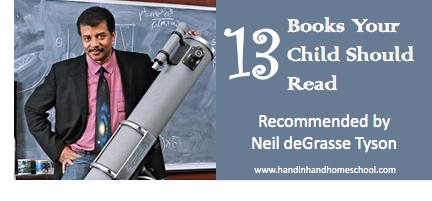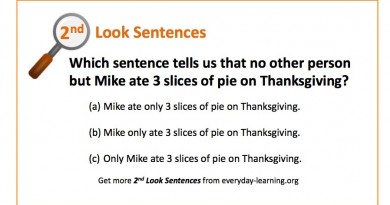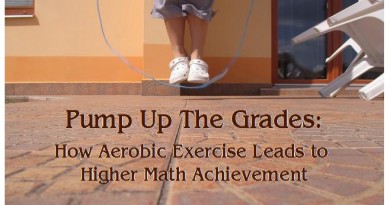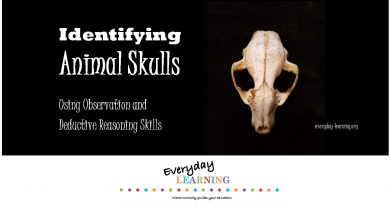Books Your Child Should Read, According to Neil deGrasse Tyson

Science nerds know Neil deGrasse Tyson for his passionate pursuit of all things outer space and of objective knowledge grounded in well-born facts.
For those of you less familiar, Dr. deGrasse Tyson is a Harvard-educated physicist who headed presidential commissions charged with charting a new American course for space exploration. He’s written numerous books and been on television shows featured around the world. And, he’s funny, too. He created StarTalk, a comedy-based podcast for people who don’t really dig science.
Over the years, deGrasse Tyson has recommended books that all children and adults should should read. We’ve compiled a list of those books for you.
 |
On the Day You Were Born by Debra Frasier In 2013, deGrasse Tyson told the New York Times that he’ll probably never write a children’s science book because he does not think he could ever top Frasier’s science writing. |
 |
There’s No Place Like Space: All About Our Solar System by Tish Rabe It might be Dr. Seuss, but the publishers sure were on the ball updating the book back when Pluto got demoted from its planet status. |
 |
Gulliver’s Travels by Jonathan Swift It’s an all-time favorite novel for deGrasse Tyson – especially the misguided scientists who spent too much time looking for answers to all the wrong questions about life. |
 |
Pinocchio by Carlo Collodi Pinocchio was a read-aloud book in the deGrasse Tyson house for its strong message on what bad behavior looks like and why making better choices is important. Spoiler alert: Jiminy Cricket doesn’t last long in the original story. |
 |
Mathematics and the Imagination by Edward Kasner and James Newman Filled full of stories and puzzles, this oldie but goodie takes topics from pi to logarithms and boils them down to an understandable level that even young teens can grasp. As deGrasse Tyson said, this was one of the books that helped him understand “the general power of mathematics to decode the universe”. |
 |
One, Two, Three . . . Infinity by George Gamow Considered to be one of the most influential books he’s ever read, One, Two, Three is an easy-to-read, albeit a bit meandering, conversation-style book about math, science, its origins, and all kinds of curious questions physicists were grappling with 50 years ago. |
In a well known Reddit Ask Me Anything session, deGrasse Tyson shared another list of books – this one for every single intelligent person on the planet. In sharing this list, he said, “If you read all of the works you will glean profound insight into most of what has driven the history of the western world.”












Thanks. We’d seen the Reddit list before but not the children’s book list.
Irony alert: Mr. Degrasse suggest that every “intelligent” person ought to read The Bible
“To learn that it’s easier to be told by others what to think and believe than it is to think for yourself.”
Then, he proceeds to tell others what they ought to think and believe about the books that he recommends. Perhaps he ought to stick to physics, since metaphysics does not appear to be his strong suit.
I am guessing you have never read it. I am not a Christian nor do I really subscribe to the idea of religion anyway…but I have taken religious studies courses and have read the Bible numbers times and I DO think it is a good idea to read it. You may not understand what Mr. DeGrasse is really saying there. Many religious people simply attend church and read scripture out of context, etc. and they trust their beliefs to what the church is telling them. They also believe the church’s perspective on the Bible. They believe a lot of thing. You need to read the Bible and understand it in a historical sense, societal sense, etc to be able to see through the religious crap with clarity. Also…reading any classical literature is a very different experience after reading the Bible since much of it contains Biblical references. The Chronicles of Narnia are enjoyable as they are…but for one who has read the Bible….there’s a deeper story there.
I’m with you on this, though I wish he’d mentioned the Koran at least, given that an understanding of it is so vital to the way the world works today. I also wish this list weren’t so Eurocentric. But, it’s a short list–one hopes if he did a longer one there would be more variety!
Well said Holly- that’s exactly what I think Mr. DeGrasse was trying to say.